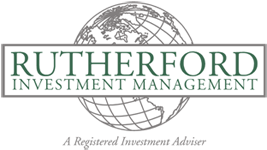Consumer Staples, Health Care Seen As Recessionary Havens
by Mary Ellen Lloyd, Dow Jones Newswires; 704-948-9145; maryellen.lloyd@dowjones.com
A year into the U.S. recession, the smart money on Wall Street says traditionally defensive sectors such as consumer staples, health care and telecommunications remain among the best bets.
That’s because it is businesses like drugstores, food producers, managed-care companies, and beer and cigarette makers that tend to do well despite tough economic times, according to several market strategists, money managers, economists and fund data managers.
“You’re dealing with industries and companies that provide necessities – everything from toothpaste to stents to pharmaceuticals to cereal,” said Brian Belski, Merrill Lynch’s U.S. sector strategist.
And some not-so-basic items can feel like necessary luxuries for folks during times of stress. “People tend to drink and smoke more during recessions and slowing times in the economy and the stock market,” Belski said.
Merrill Lynch’s December survey of global fund managers found that as investors start to look into 2009, 88% of respondents are hunkering down, wishing to overweight only four sectors: telecom, health care, utilities and consumer staples. Banks, materials, industrials and discretionary sectors are the least favorite sectors.
Some managers consider utilities, with relatively stable demand and their usually secure dividends, as good bets in tough economic times. And some believe that technology, which received blame for the last recession, has had major reversals in terms of global capacity since then and could surprise people.
“We’re officially at a neutral/marketweight (rating) on technology, but it’s probably one of the best-positioned sectors in terms of its balance sheet,” Belski said.
William Rutherford, who manages nearly $30 million in assets at his Portland, Ore., firm Rutherford Investment Management LLC, cautions investors to recognize differences within industries.
For example, within health care, Varian Medical Systems Inc. (VAR) sells big-ticket medical equipment. “Although the hospitals seem to be doing fairly well, they seem to be deferring these medical instruments,” which can hurt the equipment provider, he said.
Rutherford said that while casual-dining restaurants may lose business during a recession, quick-service giant McDonald’s Corp. (MCD) should continue to do well.
He also likes the prospects of Wal-Mart Stores Inc. (WMT), packaging manufacturer Ball Corp. (BLL), eye-care company Alcon Inc. (ACL), and Church & Dwight Co. (CHD), maker of Arm & Hammer baking soda and Brillo scouring pads.
Traditionally defensive companies have been popular investments all year, said Brad Durham, managing director of Cambridge, Mass., fund data research firm EPFR Global, and equity funds in recent months have increased their exposure to these sectors.
Before Lehman Brothers collapsed, “I’m not sure it was quite clear whether the recession had begun and where we were in the cycle,” Durham said. “Now that’s become crystal clear, and investor funds have been acting accordingly.”
It may also be a function of managers dealing with fund outflows. “If they’re having to sell, they’re probably selling their more cyclical sectors first,” he said. “They may just be reducing their exposure to financials and commodities and energy,” which makes the other sectors carry more weight in the portfolio.
Some money managers, though, are already looking past the recession as they position accounts for next year.
“Our latest research has shown that GDP actually starts to improve in the third quarter of ’09 – not a lot, but modestly,” said Scott Armiger, vice president and portfolio manager at Christiana Bank & Trust Co., of Greenville, Del., which has $1.7 billion in assets under management.
Based on the assumption that stocks will start to improve a quarter or two before that, Armiger has begun adding exposure to financial companies – through exchange-traded funds to avoid individual blowups. He’s also dabbled in discretionary names, though his pick of Nike Inc. (NKE), isn’t too bold of a bet, Armiger says.
“As far as discretionary goes, shoes are pretty defensive,” he said. “You’ve got to have shoes, and we like Nike’s growth story, and the valuations were attractive.”
